Reviews
Neil Labute
USA, 1997
Credits
Review by Matthew Derby
Posted on 08 October 2012
Source Sony DVD
Categories 31 Days of Horror IX
“So how’d it feel?” These are the first words we hear from Chad, a middle-management employee at an unnamed corporation, to his boss, Howard, who’s just been struck by a woman allegedly for asking her the time. The two men are sitting side by side in a dimly lit airport courtesy lounge, suspended in the timeless void between connecting flights. Chad, it turns out, is very interested in Howard’s feelings, and the feelings of everyone around him. He’s a veritable connoisseur of human emotion, but not in a ‘holistic health and wellness’ sort of way. He devours the wills of his victims the way Hannibal Lecter relishes a pan-seared spleen or poached cerebellum. And Howard’s will is, at the outset of Neil Labute’s cruel and unsettling debut feature, In the Company of Men, perfectly tenderized from a recent wedding engagement gone sour. It’s precisely the sort of savory meal that Chad thrives on, and we spend the rest of the film watching helplessly as he slowly flays and consumes Howard’s identity in the most excruciating and brutal detail, destroying several others in the process.
In the Company of Men is a horror movie, but instead of a masked villain lurking in the shadows with a power tool we have a handsome, persuasive alpha male in a button-down shirt and khaki slacks, and the bloodspatter and gristly gore takes place not at a sleepaway camp or in a shack in the woods but inside the skulls of his victims. Early on in the film Chad wonders angrily, “life is for the taking—is it not?” At first blush, this phrase seems like the sort of empty corporate maxim that might be found on an inspirational poster in the lobby of the firm at which Chad and Howard work, but it becomes clear as the film progresses that Chad is actually talking about taking peoples’ lives. Not taking their lives away from them, but taking their lives in his hands and squeezing them to pulp.
The savage premise of the film — which has earned it considerable notoriety and which makes it still so unsettling that it is only barely watchable — is that Chad convinces Howard to help him exact revenge on all the women who have wronged them by finding a victim with incredibly low self esteem, courting her and actively competing with one another for her heart, and then, when she’s most vulnerable, pulling back the curtain to reveal the true nature of their nightmarish sport. “She’ll be reaching for the sleeping pills within a week and we will laugh about this till we are very old men,” Chad muses to Howard as he outlines the plan. Howard seems uncomfortable with the notion, but he’s also clearly intrigued by Chad’s bravado, and his recent rejection by a woman he cared for is all the kindling needed to burn away his reservations. The dynamic between the two men is so disturbing because it’s so familiar. The weak flock to the strong for protection and validation, only to find that they’re more in danger than they ever have been.
Soon enough Chad happens upon Christine, a deaf typist at the office where he and Howard have been assigned for a six-week stint. She’s the perfect victim—attractive, confident, but alone, and - at least according to Chad - a pariah, indelibly marked by her disability. He compares her to the Elephant Man and says she’s “one of the kindest people I’ve ever had spray spit in my face.” We don’t hear Christine’s voice until later in the film, and when we do it’s only partially surprising to find that we can clearly understand her every word. Through Chad’s eyes, she can only be a victim of circumstance. This doesn’t stop him from taking her out on dates and calling her mother, and the sincerity with which he dotes on her is alarming. Chad is so convincing that at times we wonder whether he might not be falling for Christine rather than setting her up for a fall.
Meanwhile, Howard, in his own pursuit of Christine, actually does fall for her. He sees a kindness and consideration in her character that is absent from the ruthless corporate world he inhabits, and he’s drawn in. There’s just one problem—she’s falling in love with Chad, the better actor, the more charismatic suitor. When Christine admits as much to Howard on a date, he cuts it short and drives her home. Halfway there, he pulls over beneath an overpass to tell Christine that Chad “detests you and your pathetic retard voice.” He reveals the plot to her in a last-ditch effort to retaliate against her betrayal. When she doesn’t believe him, he grows agitated, shouting, “can’t you see? I’m the good guy,” when this is actually the thing we’re least able to see. Like Farley Granger in Strangers on a Train, by the time Howard realizes how deeply entrenched he is in the dark deal, it’s far too late.
Christine returns to Chad and confronts him, hoping he’ll deny Howard’s story. Instead, he confirms Howard’s claims with a casual pleasure, as though he’s only just discovering how brilliant a plan it is. When he’s finished he asks her the same question he asked Howard in the airport: “How does it feel? I mean right now, this instant—how do you feel knowing what you know now?” She slaps him and looks away, and when she does, a single high-pitched sigh erupts from deep in her soul as though it’s been boiled away, leaving nothing but a hollow shell. Chad leans in to examine her face like a scientist peering into a petri dish in what is easily the most horrifying and unpleasant moment in the film. “That’s all?” He asks her. “It only hurts that much?” He leaves Christine alone in the hotel room where they’ve met, and an overhead camera observes her curled in a fetal position, crying in agony, for close to a minute.
Labute has been characterized as a misogynist for committing this act of brutality to film, and although the staging of this scene raises urgent questions about violence against women he never answers, he’s not done with us quite yet. Because Christine, it turns out, has been nothing more than a pawn in Chad’s game to destroy Howard. We find out in a final sequence that, not only is Chad now Howard’s boss, but that the entire pretense of their preying on Christine was fictional. Chad has manipulated Howard through the same cruel, calculated means that the two of them persecuted her. He reveals this to Howard with an understated gesture that takes time to fully sink in. Time enough for Chad to ask one more time, finally looking Howard in the eye, “How does it feel, Howie? How does it feel to really hurt someone?” The film ends with Chad drifting pleasantly off to sleep in the arms of his wife, while Howard stalks Christine like a wounded, rabid animal. Chad has destroyed two lives in the space of just a few weeks, and he is more powerful than ever. No different from any man who’s planted a flag at the summit of the mountain of bodies he sacrificed to get to the top. In the Company of Men is ultimately a story of American capitalism, a story of us. And its capacity to horrify lies in its proximity to the culture in which we’re all steeped.
More 31 Days of Horror IX
-
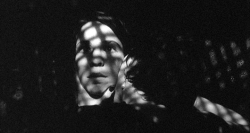
The Addiction
1995 -

Psycho III
1986 -

Wake in Fright
1971 -

Blacula
1972 -
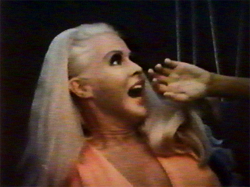
Big Foot
1970 -

Trollhunter
2010 -

Invasion from Inner Earth
1974 -
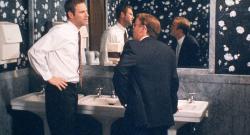
In the Company of Men
1997 -

Happy Birthday to Me
1981 -

I Drink Your Blood
1970 -
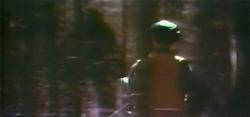
The Legend of Boggy Creek
1972 -

Maximum Overdrive
1986 -

The Giant Spider Invasion
1975 -

Ganja & Hess
1973 -
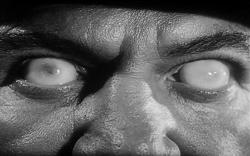
Not of This Earth
1957 -

Let’s Scare Jessica to Death
1971 -
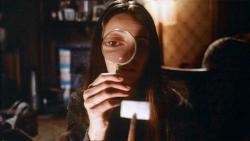
Next of Kin
1982 -
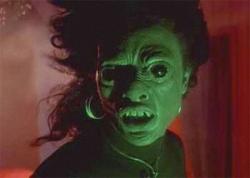
Def by Temptation
1990 -
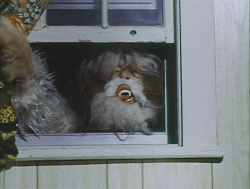
Shriek of the Mutilated
1974 -
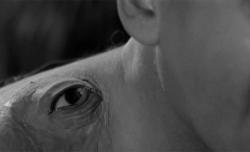
The Manster
1959 -
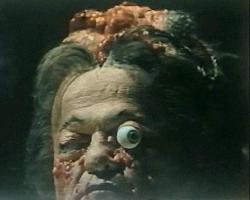
The Alpha Incident
1978 -
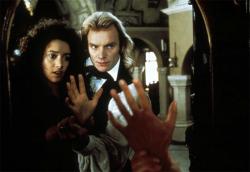
The Bride
1985 -

Planet of the Vampires
1965 -

The Hole
2009 -
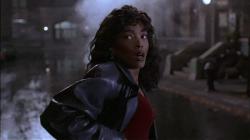
Vampire in Brooklyn
1995 -

Sasquatch: the Legend of Bigfoot
1977 -

Mad Love
1935 -
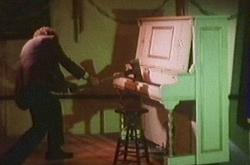
The Demons of Ludlow
1983 -

Habit
1997 -

Elephant
1989 -

The Blair Witch Project
1999
We don’t do comments anymore, but you may contact us here or find us on Twitter or Facebook.



